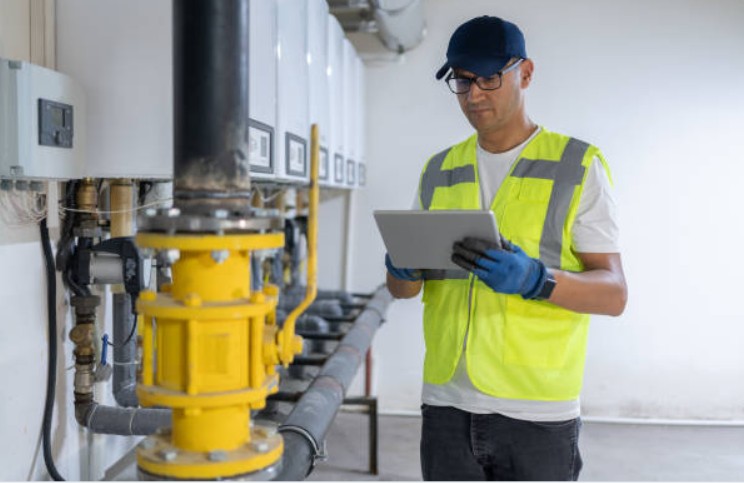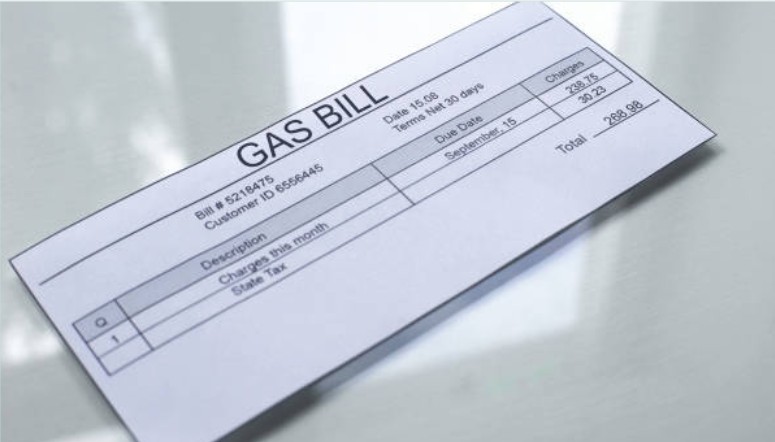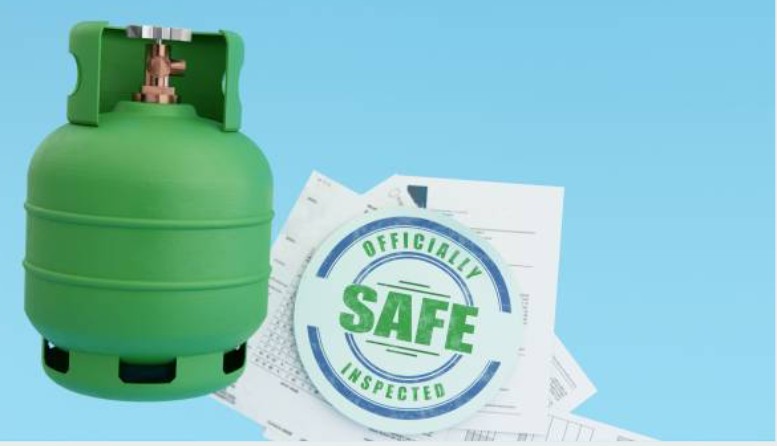Gas safety is a top priority for households across the UK. With the evolving standards and updated guidelines for 2025, the question “Do Homeowners Need a Gas Safety Certificate?” has become more relevant than ever. In this detailed guide, we explore the new insights, examine the updated regulations, and provide practical advice for homeowners looking to ensure the safety and efficiency of their gas installations.
What Is a Gas Safety Certificate and Why Does It Matter in 2025?
A Gas Safety Certificate (commonly referred to as a CP12) is an official document issued by a Gas Safe registered engineer after inspecting all gas appliances and installations in your property. Traditionally required for landlords, the latest insights indicate that even owner-occupied homes can benefit greatly from these inspections.
Why Is It Important Now?
- Enhanced Safety Protocols: 2025 brings revised guidelines that include checks for energy efficiency and environmental compliance.
- Risk Mitigation: Regular inspections help detect potential gas leaks, carbon monoxide risks, and other hazards before they cause serious harm.
- Improved Appliance Performance: Ensuring your appliances operate at peak efficiency can reduce energy bills and extend their lifespan.
Do Homeowners Need a Gas Safety Certificate?

This is the burning question for many UK homeowners in 2025. While the law mandates a Gas Safety Certificate for rental properties, owner-occupied homes are not legally required to obtain one. However, there are several compelling reasons to consider it:
- Safety Assurance: Regular inspections ensure that gas appliances are safe to use, minimizing risks such as gas leaks and carbon monoxide poisoning.
- Insurance Benefits: Up-to-date certificates may streamline insurance claims and protect your coverage.
- Home Value: A certified, well-maintained property can be more attractive to buyers if you decide to sell.
- Early Fault Detection: Identifying issues early can prevent costly repairs and ensure efficient appliance performance.
Adopting a proactive approach not only safeguards your home but also provides peace of mind that your living environment is secure and efficient.
Is It Legally Mandatory for Homeowners to Have a Gas Safety Certificate?
Current legislation mandates gas safety certificates for rented properties, but owner-occupied homes are not legally required to obtain one. Despite this, the new recommendations for 2025 urge homeowners to adopt similar practices to ensure safety and protect their investments.
| Property Type | Legal Requirement | 2025 Recommendation |
| Rented Property | Yes – Annual inspection is mandatory | Yes – Strict compliance enforced |
| Owner-Occupied Home | No – Not legally required | Yes – Strongly advised for safety |
| Holiday Homes | Yes – If the property is rented out | Yes – For insurance and safety benefits |
| New Build with Gas Usage | Required if intended for rental/sale | Yes – Enhances property marketability |
Why Should Homeowners Consider a Gas Safety Certificate Even if It’s Not Required?
Even though it isn’t a legal mandate for owner-occupied homes, there are several compelling reasons why homeowners are increasingly opting for regular gas safety inspections:
- Peace of Mind: Ensure that your gas appliances are operating safely and efficiently.
- Insurance Benefits: Some insurance providers now require documented gas safety checks for claim processing.
- Property Value: A well-maintained home with regular safety checks can have a higher resale value.
- Early Fault Detection: Identify and address potential hazards early, avoiding costly repairs or emergencies.
- Energy Efficiency: Modern inspections include energy efficiency evaluations, helping to reduce overall energy consumption.
What Does a 2025 Gas Safety Check Include?
The comprehensive inspection process in 2025 has evolved to cover a wider range of checks than ever before. Below is a detailed table outlining the key components of a modern gas safety check:
| Inspection Area | Details of the Check |
| Gas Appliances | Boilers, cookers, and fires are checked for leaks, wear, and proper operation. |
| Ventilation Systems | Ensures that there is adequate airflow to prevent gas build-up and carbon monoxide accumulation. |
| Flues and Chimneys | Inspected for blockages, damage, or any signs of deterioration that could impair the safe expulsion of fumes. |
| Pipework and Connections | Pressure tests and leak detection to ensure that the gas delivery system is secure and efficient. |
| Carbon Monoxide Detection | Utilises advanced sensors to detect CO levels and ensure that CO alarms are installed and functional. |
| Energy Efficiency Evaluation (NEW) | Rates the performance of appliances with a focus on reducing energy wastage and enhancing overall efficiency. |
How Often Should You Schedule a Gas Safety Inspection?

Are Annual Inspections Really Necessary?
Yes. Annual inspections are highly recommended by UK safety bodies—even if not legally mandated for owner-occupied homes—for several important reasons:
- Wear and Tear: Gas appliances degrade over time, which can lead to inefficiencies and hazards.
- Regulatory Updates: Safety standards evolve, and annual checks ensure your installations remain compliant with the latest guidelines.
- Cost Savings: Early detection of faults can prevent expensive emergency repairs and extend the lifespan of your appliances.
- Insurance Compliance: Maintaining up-to-date inspection records may simplify insurance claims and avoid disputes in the event of an incident.
What Is the Cost of a Gas Safety Certificate in 2025?
The price of a gas safety inspection varies by location, the number of appliances, and local labour costs. The following table provides an overview of the average costs across key UK regions:
| Location | Average Inspection Cost | Typical Appliances Covered | Additional Notes |
| London | £90–£120 | Up to 3 appliances | Higher rates due to increased demand |
| Manchester | £70–£100 | Up to 3 appliances | Competitive pricing with occasional discounts |
| Birmingham | £65–£95 | Up to 2 appliances | Additional appliances incur extra fees |
| Edinburgh | £75–£105 | Up to 3 appliances | Includes mandatory CO alarm testing |
What Are the Risks of Skipping Your Gas Safety Check?
Failing to carry out regular gas safety inspections can result in several serious risks:
- Carbon Monoxide Poisoning: Undetected leaks can lead to the build-up of CO, which is a silent killer.
- Gas Leaks and Explosions: Faulty appliances or connections may lead to dangerous gas leaks, increasing the risk of fire or explosions.
- Insurance Complications: Lack of proper documentation might invalidate insurance claims following an incident.
- Increased Repair Costs: Early issues may escalate into major faults, resulting in higher repair or replacement costs.
- Reduced Property Value: Homes without updated safety certifications may suffer in the property market, especially during resale.
How Can You Easily Book a Gas Safety Inspection?
What Steps Should You Follow to Secure a Gas Safety Certificate?
Booking your gas safety inspection is straightforward. Follow these steps to ensure your home is safe and compliant:
- Find a Registered Engineer: Visit the Gas Safe Register to locate certified engineers in your area.
- Compare Quotes: Look at various providers to find competitive pricing and reliable service.
- Schedule Your Appointment: Book your inspection, preferably on an annual basis, to ensure continuous safety.
- Maintain Your Records: Keep both digital and physical copies of your gas safety certificate for future reference and insurance purposes.
Are There Additional Benefits to Regular Gas Safety Checks?
What Long-Term Advantages Do Homeowners Enjoy?

Beyond the immediate safety benefits, regular gas safety inspections offer several long-term advantages:
- Lower Energy Bills: Efficient appliances use less energy, which can reduce your utility costs.
- Enhanced Appliance Longevity: Regular maintenance helps extend the lifespan of your gas appliances.
- Peace of Mind: Knowing that your home is safe allows you to focus on other aspects of home improvement.
- Environmental Impact: Modern checks include energy efficiency assessments, which contribute to reduced carbon emissions.
- Increased Market Value: A certified, well-maintained home is more attractive to potential buyers, should you decide to sell.
How Are Experts Viewing the 2025 Updates?
Recent studies by safety experts and industry analysts indicate that the updated gas safety guidelines for 2025 are designed not only to enhance personal safety but also to promote energy efficiency across the UK. Experts suggest that:
- Widespread Adoption: More homeowners are expected to voluntarily adopt annual inspections as public awareness of gas safety increases.
- Smart Technology Integration: Future inspections may incorporate smart monitoring systems that provide real-time feedback on appliance performance.
- Legislative Evolution: Ongoing regulatory improvements are likely to further emphasize the importance of regular inspections, making them an integral part of home safety.
Conclusion: Do Homeowners Need a Gas Safety Certificate in 2025?
Yes, if you value safety, efficiency, and long-term savings.
While owner-occupied homes are not legally required to have a Gas Safety Certificate, the enhanced benefits of regular inspections—ranging from improved appliance efficiency to increased property value—make it a wise investment for every homeowner.
Embracing these new 2025 guidelines not only secures your home against potential hazards but also contributes to a sustainable future by promoting energy efficiency. Now is the time to take proactive steps: schedule your gas safety inspection, maintain detailed records, and stay informed about further regulatory updates.
FAQs – Your Top Questions Answered
Do homeowners legally need a Gas Safety Certificate in 2025?
No, while not legally mandatory for owner-occupied homes, obtaining a Gas Safety Certificate is highly recommended for safety and efficiency reasons.
How comprehensive is a modern gas safety inspection?
Modern inspections cover all gas appliances, ventilation systems, pipework and now include checks for energy efficiency and environmental compliance.
Where can I find a qualified engineer?
Visit the Gas Safe Register to locate certified engineers who are qualified to perform your gas safety inspection.






